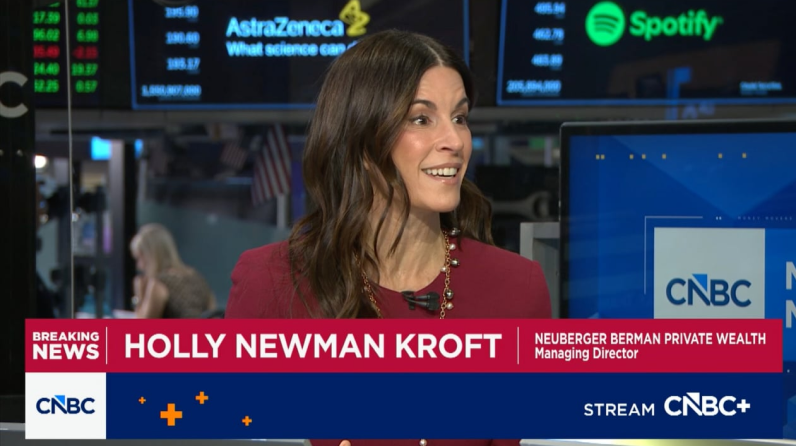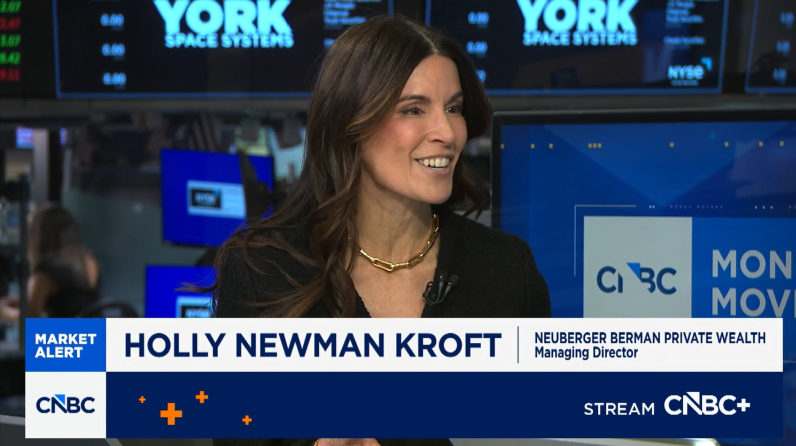

Investors are adapting to a more capital-constrained environment.
Uncertainty was a key issue last year as investors sought clarity on economic, capital markets, policy and geopolitical issues. This, plus the higher cost of capital following aggressive central bank interest rate hikes, led to a slowdown in transaction activity across the private markets landscape, with private equity new-deal activity down 40% from 2021 highs.1 At the same time, the IPO market contracted, further limiting occasions for investors to realize cash from existing holdings. Looking ahead into 2024, we see an array of continued opportunities emerging, influenced by the dynamics that were at play in 2023. In this Insights, we provide a brief overview of recent trends and assess an evolving landscape.
2023 in Review
Despite a challenging dealmaking environment, private markets have continued to deliver strong long-term returns, often with less volatility along the way. While 2023 results for private equity lagged the robust recovery in publicly traded stocks, they were relatively strong over the previous couple of years, including in the difficult 2022 environment, and have outpaced public markets over the last five-, 10-, 15- and 20-year periods (see display). In our view, such resilience makes sense, as private markets generally constitute a long-term investment whose characteristics make them less susceptible to the near-term dynamics and pressures associated with public-markets investments.
Long-Term Performance Strength Across Market Cycles
Global Private vs. Public Equity

Source: Private equity data from Burgiss. Represents pooled horizon IRR and first-quartile return for Global Private Equity as of 3Q 2023, which is the latest data available. Public market data sourced from Neuberger Berman as of 3Q 2023. Nothing herein constitutes a prediction or projection of future events or future market behavior. Historical trends do not imply, forecast or guarantee future results. Due to a variety of factors, actual events or market behavior may differ significantly from any views expressed. See Additional Disclosures at the end of this publication. Past performance is not indicative of future results.
While performance remains solid, the slower deal-making environment and low exit volume have had material impact on private markets firms and their limited partner investors. For investors in private equity funds, for example, fewer transactions have resulted in slower return of capital (i.e., cash distributions) than experienced in the recent past. In some cases, investors have seen net cash outflows as capital calls for new investments have outpaced distributions from exits of legacy positions. We believe this, combined with strong relative performance of private equity over time, has led some to overallocate to the asset class—prompting certain investors to seek new exit options to right-size allocations and generate liquidity, although in some cases to generate new private markets exposures.
For private equity firms, the lower transaction volume has meant that “hold periods” for portfolio company ownership have been stretched. As a result, these firms are focused on maximizing the value of their assets to position them for exit in a future, more friendly environment with less uncertainty, where they can more fully capture “fair value” on the sale.
One way private equity firms have looked to add value to existing portfolio companies is through strategic mergers and acquisitions. These “add-on” acquisitions were a key focus in 2023 as managers looked to increase economies of scale and position companies for eventual exit. These types of transactions require additional capital, either through debt or equity markets, providing what we see as a robust opportunity for investors with available funds to help finance them. As discussed below, we see this creating meaningful opportunities in private markets over the current year.
Opportunities and Risks in 2024
In our view, a near-term reversal of certain headwinds appears unlikely, given uncertainty around the economy, interest rates, geopolitical events and government policy amid a busy global election cycle. However, should uncertainty fade over 2024, private markets activity may move back into gear, as buyers and sellers gain more common ground as to pricing.
At Neuberger Berman, we view private equity as a long-term, strategic allocation in client portfolios. We believe that ongoing, annual commitments to core strategies are paramount to building a resilient, diversified portfolio over time. That said, market disruptions like we experienced in 2023 have historically led to some of the strongest-returning vintages of private equity.
In this slower dealmaking and exit environment, particularly compelling opportunities exist, in our view, for those who can be liquidity and solutions providers.
Some key areas of emphasis are as follows:
Private equity co-investments, a passive equity stake directly into a portfolio company alongside the lead private equity manager, have become an increasingly important source of capital to complete new deals and support continued corporate growth. “Midlife” transactions, in particular, are finding traction as private markets firms seek passive, minority equity investments for funding ongoing growth initiatives.
Secondary markets, which provide access to seasoned private equity investments, are also showing promise for investors that can facilitate liquidity solutions to both private equity firms and their limited partners. Demand for liquidity is currently outstripping capital, creating what we consider a buyers’ market where secondary investors may be able to access high-quality businesses at attractive valuations. We see particular opportunity in deals led by general partners who are seeking to provide liquidity to their investors while wishing to retain exposure to existing portfolio companies.
Capital solutions, often in the form of preferred stock or other structured equity and credit, can help sponsors of private companies bridge the gap between equity and debt when they have the opportunities to grow, but are unable to tap the credit markets or unwilling to dilute existing shareholders.
Private credit providers to private equity-sponsored companies, although facing renewed competition as the market becomes less credit-constrained, continue to offer attractive yields, while declines in the leverage employed in transactions is easing risk.
Despite these opportunities, the outlook for private markets is not without risk, and manager selection continues to be crucial. Market-based tailwinds like low capital costs and ever-expanding valuations have faded. Going forward, we believe skills-based value creation levers, including asset selection, operational improvements and strategic acquisitions are likely to be important drivers for success. In particular, we think specialist managers with a well-honed expertise in specific industries, geographies and certain value creation approaches may be particularly compelling. That said, manager and investment selection are likely to continue to be paramount in this environment.
Our Key Advantages in Private Markets
Shifting market dynamics may prove challenging—but may also provide opportunities for well-positioned investors. With the sunset of the “easy money” regime of low rates and expanding equity valuations, we will likely see greater dispersion of outcomes for companies and investment managers. Neuberger Berman’s $120 billion2 private markets platform and unique position in the private equity ecosystem allows our clients to benefit from access to quality private equity firms, strategies and companies that are well positioned to navigate the challenging market environments of today and tomorrow. Our relationships with private equity firms continue to deepen as they increasingly turn to us for capital and liquidity solutions across primaries, secondaries, co-investments and debt transactions. The NB Private Wealth team continues to draw on this capability to the benefit of clients, consistent with individual circumstances and priorities.


Accolades
Forbes | SHOOK 2026 Top Women Wealth Advisors

INSIGHTS
CIO Notebook: January Jobs Prove Worth the Wait

VIDEO
Holly Newman Kroft Featured on CNBC’s Money Movers February 10th

MARKET COMMENTARY
A Rocky Rotation

INSIGHTS
Trump 2.0: Middle Innings of an Uncertain Game

INSIGHTS
Seismic Shifts That Could Drive Private Markets

VIDEO
Holly Newman Kroft Featured on CNBC’s Money Movers January 29th
INSIGHTS
Preparing Your Children for Wealth: A Life-Stage Roadmap
INSIGHTS
Concentrated Stock Risk: Working From All Angles
VIDEO
Highlighting Jenna Elson, Team Kaminsky’s Dedicated Certified Financial Planner®
INSIGHTS
CIO Notebook: Fed Stands Firm as Powell’s Successor Waits in the Wings
MUNICIPAL BASIS POINTS
Buckle Up
REPLAY
Private Wealth Investment Outlook 1Q26
1 Pitchbook as of 4Q 2023. Includes buyout and growth equity. Includes completed deals only.
2 As of September 30, 2023. Represents aggregate committed capital since inception in 1987, including commitments in the process of documentation or finalization.
This material is provided for informational and educational purposes only and nothing herein constitutes investment, legal, accounting or tax advice, or a recommendation to buy, sell or hold a security. This material is general in nature and is not directed to any category of investors and should not be regarded as individualized, a recommendation, investment advice or a suggestion to engage in or refrain from any investment-related course of action. Investment decisions and the appropriateness of this material should be made based on an investor’s individual objectives and circumstances and in consultation with his or her advisors. This material is not intended as a formal research report and should not be relied upon as a basis for making an investment decision. The firm, its employees and advisory clients may hold positions within sectors discussed, including any companies specifically identified. Specific securities identified and described do not represent all of the securities purchased, sold or recommended for advisory clients. It should not be assumed that any investments in securities, companies, sectors or markets identified and described were or will be profitable. Neuberger Berman, as well as its employees, does not provide tax or legal advice. You should consult your accountant, tax adviser and/or attorney for advice concerning your particular circumstances. Information is obtained from sources deemed reliable, but there is no representation or warranty as to its accuracy, completeness or reliability. All information is current as of the date of this material and is subject to change without notice. Any views or opinions expressed may not reflect those of the firm as a whole. Third-party economic or market estimates discussed herein may or may not be realized and no opinion or representation is being given regarding such estimates. Neuberger Berman products and services may not be available in all jurisdictions or to all client types. The use of tools cannot guarantee performance. Diversification does not guarantee profit or protect against loss in declining markets. As with any investment, there is the possibility of profit as well as the risk of loss. Investing entails risks, including possible loss of principal. Investments in hedge funds and private equity are speculative and involve a higher degree of risk than more traditional investments. Investments in hedge funds and private equity are intended for sophisticated investors only. Unless otherwise indicated, returns reflect reinvestment of dividends and distributions. Indexes are unmanaged and are not available for direct investment. Past performance is no guarantee of future results.
The views expressed herein may include those of the Neuberger Berman Multi-Asset Class (MAC) team, Neuberger Berman’s Asset Allocation Committee and Neuberger Berman’s Private Wealth Investment Group. The Asset Allocation Committee is comprised of professionals across multiple disciplines, including equity and fixed income strategists and portfolio managers. The Asset Allocation Committee reviews and sets long-term asset allocation models, establishes preferred near-term tactical asset class allocations and, upon request, reviews asset allocations for large, diversified mandates. Tactical asset allocation views are based on a hypothetical reference portfolio. The NB Private Wealth Investment Group analyzes market and economic indicators to develop asset allocation strategies. The NB Private Wealth Investment Group consists of five investment professionals and works in partnership with the Office of the CIO. The NB Private Wealth Investment Group also consults regularly with portfolio managers and investment officers across the firm. The views of the MAC team, the Asset Allocation Committee and the NB Private Wealth Investment Group may not reflect the views of the firm as a whole, and Neuberger Berman advisers and portfolio managers may take contrary positions to the views of the MAC team, the Asset Allocation Committee and the NB Private Wealth Investment Group. The MAC team, the Asset Allocation Committee and NB Private Wealth Investment Group views do not constitute a prediction or projection of future events or future market behavior. This material may include estimates, outlooks, projections and other “forward-looking statements.” Due to a variety of factors, actual events or market behavior may differ significantly from any views expressed or any historical results. Nothing herein constitutes a prediction or projection of future events or future market or economic behavior. The duration and characteristics of past market/economic cycles and market behavior, including length and recovery time of past recessions and market downturns, is no indication of the duration and characteristics of any current or future market/economic cycles or behavior.
Neuberger Berman Investment Advisers LLC is a registered investment adviser. The “Neuberger Berman” name and logo are registered service marks of Neuberger Berman Group LLC.